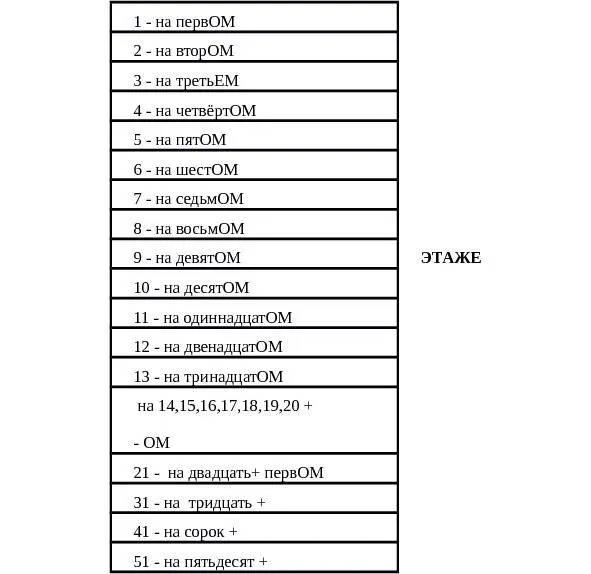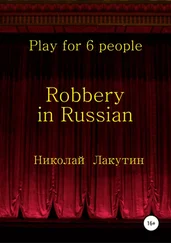Let’s take the verb “отдыхать” for example. After this verb should be used a noun in case 6, noun’s ending changes to —Е. Я + отдыхал (the Past Tense) + a noun in case 6. The phrase Я отдыхал Европа is not correct.
If you have a rest in Europe every year, you should say “Каждый год я отдыхаю в Европе”. (“I have a rest in Europe every year”. )
Or: Я + учился + в Америке, а сейчас учусь (the Present Tense) + в Москве.
Or: Я обычно завтракаю + в кафе, обедаю + в ресторане, а ужинаю + дома. (All verbs are used in the Present Tense). The word “дома” doesn’t change as it is an exception.
Sure, you can use these verbs without nouns, for example: Сегодня я отдыхаю. Я сейчас обедаю. Я не работал вчера.
One of my students from Japan said that the Japanese never asked the question “Ты где?” This question seems to them indecent, almost the interference in private life. It does not apply to the Russians. The Russians, when talking on the phone, after greeting ask a question “Ты где?” probably in a half of cases. That’s why we study this model one of the first. The advantage is that it is easy to remember noun’s endings. The nouns of feminine an masculine genders change their endings to —Е.

The question “Вы где?” (“Where are you?”) refers to the action taking place in the present. When answering this question, the verb “быть” is missing. For example: – Ты где? – Я на работе. In the Past Tense the suffix —Л is added to the verb. Я былна работе. (masc.gen.). Я былана работе. (fem.gen.). Мы были на работе. (pl.). In the Future Tense the verb changes in relation to a pronoun. For example: Я буду на работе. Ты будешь на работе. Она будет в университете? You can see all variants in table 4.When in a question the verb “быть” is in the Past Tense, you should use the Past Tense in a reply. When in a question the verb “быть” is in the Future Tense, you should use the Future Tense in a reply. For example: – Где ты был? (Where were you?) – Я был дома. (I was at home.) Or: – Где ты будешь завтра утром? (Where will you be tomorrow morning?) – Я буду завтра утром в университете. (I’ll be at the university tomorrow morning.) After the verb “быть” should be used a noun in case 6.
Exercise 13.
Give a negative answer to the questions.
Sample: Вы были в Москве? (Have you been in Moscow?) – Нет, я не был в Москве. (No, I’ve never been in Moscow.)
Вы в Москве сейчас? (Are you in Moscow now?) – Нет, я не в Москве сейчас. (No, I am not in Moscow now.)
1.Вы в Чикаго?
2.Она в Петербурге?
3.Он был в Канаде?
4.Вы были в Пекине?
5.Она дома?
6.Вы были в Токио?
7.Вы были в Москве?
8.Вы будете в университете завтра в 12 часов?
9.Ты здесь?
Exercise 14.
Answer the questions:
1.Где вы сейчас?
2.Где вы будете сегодня через 3 часа?
3.Где вы были вчера вечером?
4.Где вы были вчера утром?
5.Где вы будете завтра утром?
6.Где вы будете сегодня вечером?
7.Вы были в Москве?
8.Вы были в Санкт-Петербурге?
9.Где вы были в воскресенье?
10.Вы были вчера в ресторане?
11.Где вы будете через год?
12.Где вы будете через 10 лет?
А) In what sentences the verb “быть” is used in the Future Tense?
Б) In what sentences the verb “быть” is used in the Past Tense?
В) In what sentences the verb “быть” is used in the Present Tense?
Model – На каком этаже..? =On what floor..? (case 6)
When answering the question: “На каком этаже..?”, your answer implies the use of a preposition НА and the ending —ОМ at numeral. The ending of the noun “этаж” is changed to —Е. When you want to know on what floor someone or something exactly is situated, you should ask: Извините, не подскажете, на каком этаже находится (находиться —н.в.)+ … (case 1)? For example: Извините, не подскажете, на каком этаже находится туалет? (Excuse me, could you tell me on what floor is the toilet?) (аптека, касса, магазин, кинотеатр, ресторан)?
Or, for example, you want to meet somebody and phone this person: – Ты на каком этаже сейчас? – Я на втором этаже.
Here is an example of a very common question: – На каком этаже ты живёшь (работаешь, учишься)? (On what floor do you live (do you work, do you study)?) – Я живу на пятом этаже. See on the table p. 56.

Answer the questions:
На каком этаже вы учитесь? Я учусь на…
На каком этаже вы живёте? Я живу на…
На каком этаже вы работаете? Я работаю на…
На каком этаже вы учились в школе? Я учился на…
Often the model “на… этаже” is used with the following verbs:
Я буду ждать вас = (I will wait you) на… этаже.
Давайте встретимся (Lets meet!) (встретиться – с.в.) на… этаже!
Давайте выпьем (Lets drink) (выпить – с.в.) кофе на… этаже!
– Ты где? – Я на втором этаже!
– Вы на каком этаже сейчас? – Мы на последнем (последний= last) этаже.
Exercise 15.
Write the numerals given in brackets. Sample: Я жду вас … (4). – на четвёртом этаже.
1.Я живу… (1)
2.Я жду … (2)
3.Я учусь … (3)
4.Он живёт … (5)
5.Туалет … (7)
6.Кинотеатр … (8)
7.Давайте встретимся … (9)
8.Он работает … (10)
9.Мы жили … (11)
10.Она была … (3)
11.Они работают … (21)
Model – Какое сегодня число? =What is the date today?
When you suddenly forget-)), what date is today (or yesterday and tomorrow) or your Russian friend forgets it, questions will be following – Какое сегодня число? (What is the date today?) – Какое число было вчера? (What was the date yesterday?) – Какое число будет завтра? (What will be the date tomorrow?)
Читать дальше














